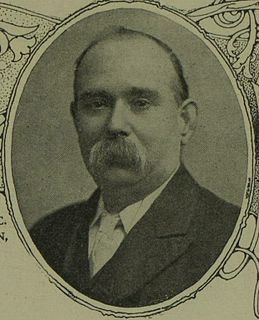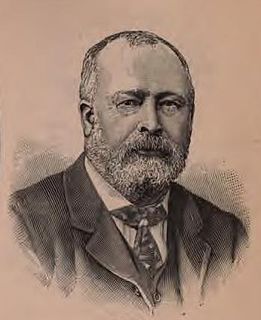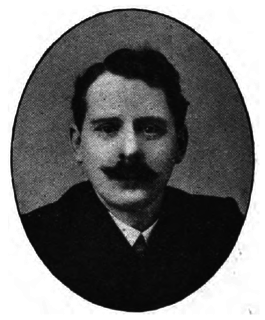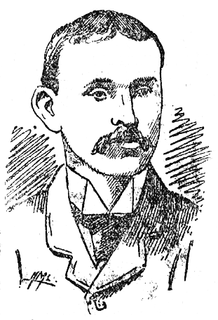Related Research Articles

George Nicoll Barnes was a British Labour politician and a Leader of the Labour Party (1910–1911).

Fred Bramley was the second General Secretary of the British Trade Union Congress (TUC).

William Charles Steadman, usually known as W. C. Steadman, was a prominent trade unionist and Liberal or Lib-Lab politician.

Henry Broadhurst was a leading early British trade unionist and a Lib-Lab politician who sat in the House of Commons for various Midlands constituencies between 1880 and 1906.

George Shipton was a prominent British trade unionist.

The Amalgamated Society of Boilermakers, Shipwrights, Blacksmiths and Structural Workers (ASB) was a trade union in the United Kingdom. Many of its members worked in shipbuilding, in which industry it was the leading trade union, while over time it also developed strength in engineering and construction.
The Amalgamated Society of Engineers (ASE) was a major British trade union, representing factory workers and mechanics.
Frank Wolstencroft was a British trade union leader.

Isaac Haig Mitchell was a Scottish trade unionist.
The General Council of the Trades Union Congress is an elected body which is responsible for carrying out the policies agreed at the annual British Trade Union Congresses (TUC).
Ivor H. Gwynne (1867–1934) was a Welsh trade unionist and politician.
Robert Austin was a British trade unionist.

Francis Chandler was a British trade unionist.

Jenkin Jones was a Welsh trade unionist.
Robert Baxter Garland was a Scottish trade unionist.
George Peet was a British communist activist and trade unionist.
John Thomas Byrne MBE was a Scottish trade union leader and anti-communist activist.
James Gorman was a British politician and trade unionist.
The Notts Trades Council, formally known as the Nottinghamshire Nottingham and Mansfield Trades Council, brings together trade unionists in Nottinghamshire, in England.
William Glennie was a Scottish trade unionist and political activist.
References
- 1 2 Amalgamated Society of Engineers, Amalgamated Society of Engineers: Jubilee Souvenir 1901, p.86
- ↑ Amalgamated Society of Engineers, Amalgamated Society of Engineers: Jubilee Souvenir 1901, p.74
- ↑ Amalgamated Society of Engineers, Amalgamated Society of Engineers: Jubilee Souvenir 1901, p.78
- ↑ James Bavington Jeffreys, The Story of the Engineers: 1800–1945, p.113
- ↑ Amalgamated Society of Engineers, Amalgamated Society of Engineers: Jubilee Souvenir 1901, pp.87-89
- ↑ Amalgamated Society of Engineers, Amalgamated Society of Engineers: Jubilee Souvenir 1901, p.93
- ↑ Alan Haworth and Dianne Hayter, Men Who Made Labour, p.24